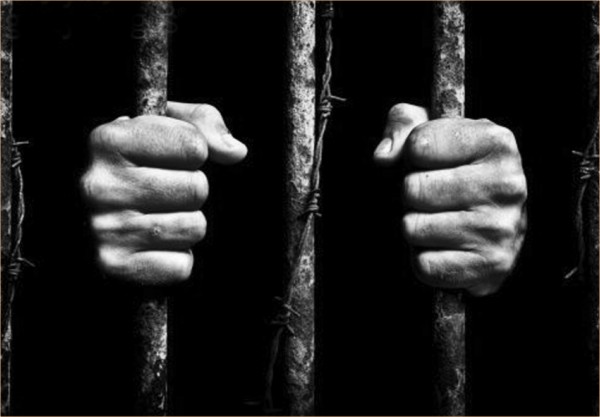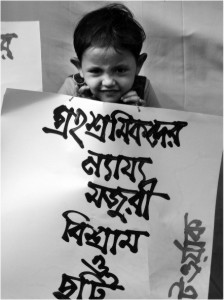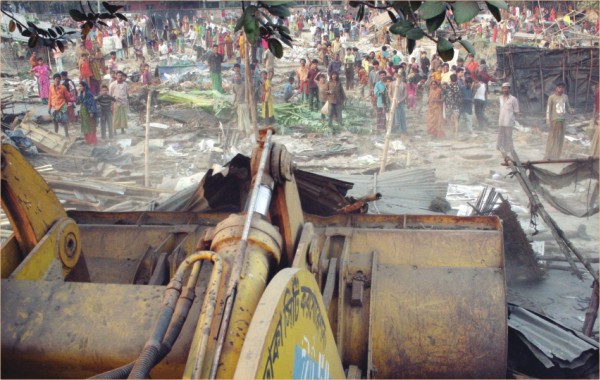 |
||||||||||||
Working democracy: A stocktaking--Dr. Kamal Hossain Politics invading culture--Serajul Islam Chowdhury Bangladesh at 40: Addressing governance challenges -- Barrister Manzoor Hasan, Dr. Gopakumar Thampi and Ms. Munyema Hasan Party government and partisan government-- Dr. Mizanur Rahman Shelley Is rule by the majority enough?-- Mohammad Abu Hena The rubric of good governance --Mohammad Badrul Ahsan For a human rights culture -- Professor Dr. Mizanur Rahman For an independent Human Rights Commission-Sayeed Ahmad Of this and that -- Sultana Kamal Tribalist corruption-- Mohammad Badrul Ahsan Fighting terrorism: Enforcement challenges--Muhammad Nurul Huda Combating corruption: People are watching-- Iftekharuzzaman E-government and its security-- Dr. M Lutfar Rahman CHT Accord: Implementation a half empty glass -- Devasish Roy Wangza Citizenship and contested identity: A case study -- Bina D'costa and Sara Hossain Forty years of "yes ministership"-- Mahbub Hussain Khan Politician-bureaucrat interface-- AMM Shawkat Ali Impartial bureaucracy: A fading dream-- Nurul Islam Anu Forty years... and diverse governments--Syed Badrul Ahsan Protect environment, save the nation--Morshed Ali Khan
|
||||||||||||
 Photo: Amirul Rajiv |
||||||||||||
For a human rights culture Professor Dr. Mizanur Rahman Our constitution has pledged to establish human rights, democracy and worth of human person. But the wide gap between law and justice insulates this noble vision. The success of state depends upon the ability of actualization of social justice and upholding of human dignity---the core underpinning of modern human rights jurisprudence. The state is to ensure the functional success of equality, dignity, life and liberty beyond the catchwords and clichés of political demagogy. In the line of state's optics, there should have been the presence of suppressed and tortured, grossly discriminated, child soaked in blood, farmer and labour riddled with toil, tears and sweat. The question is: does the state feel the sufferings of these people seriously or does the state mechanism take the constitutional pledge honestly? Or do we find an egalitarian social order, where essence of human dignity is reminded in the rubric of national life? Should the state machinery interpret and translate this essence of human dignity in its fundamental principles of state policywhich are constitutionally said to form the basis of all state-actions? Mechanism to build a human rights culture The potential benefits, it is argued, of embedding a dedicated human rights institution within the state are many. In the context of Bangladesh, three benefits may be of particular significance. First, members of a national institution remain in a position to work closely with the government in implementing strategies to realize human rights. Second, members of the human rights institution are acutely aware of the socio-cultural context into which the panoply of human rights must be translated. Third, the non-state actors and people at large feel a sense of ownership in the human rights institution and the principles it embodies. In the long run, the Human Rights Commission can contribute to create a culture of human rights. The NHRC Bangladesh The governing law on the point is National Human Rights Commission Act, 2009. In consonance with Bangladesh's commitment to international human rights law, the Commission purports to serve as a mechanism for the enrichment of the realization of human rights. Its journey is aimed at creating a culture of human rights through public enlightenment on diverse human rights issues so that the people of the country can contribute to larger peace and security keeping in pace with the 'progressive aspirations of human kind.'
Principles of NHRC What role for NHRC? Justice Krishna Iyer rightly says, 'justice is what justice does and not what it pretends'. Therefore, crux function of the NHRC is to constantly make a fervent appeal for structural re-organization of state instrumentalities directed towards a new remedial creative justice delivery system.
The NHRC is still passing its nascent stage. The Commission has made very positive and significant surveillance on general as well as on specific human rights situations in the country in the immediate past couple of months. It has tried vigorously to draw the attention of the concerned authorities to the incidents of extra-judicial killings, custodial torture, detention of the accused without trial for a long period of time, inhuman conditions of living in the prisons, the malady of medical negligence, deplorable conditions of socio-economic rights etc. The Commission has condemned the tendency of 'extra-judicial killing' by the law enforcement agencies. The government though is very miser to admit the presence of such killings, it seems scrupulously committed to address the problem. It seems that we are beset with a truth-myth syndrome about 'extra-judicial killings' asking to ourselves: 'If you are not a myth/whose reality are you? /If you are not reality/Whose myth are you?' 'Extra-judicial killings' are the testimony of a shaky confidence of the state behaviour. It is not a panacea, rather a Pandora's Box. The Commission is concerned about rights of the physically challenged, women rights, migrants' rights, child rights, the rights of the adivasis and so on. The Commission condemns the culture of impunity and very much keen to see the perpetrators of international crimes of 1971 are brought to justice in due process of law. The challenges The dominant institutional challenges for the NHRC would be to develop the complaint mechanism. It is because of the reason that the effective complaint mechanism is the heart of this type of human rights bodies. The success of the Commission, as Professor Shah Alam, Chairman, Law Commission, in one of his recent papers has mentioned, will fundamentally depend on designing the procedure of accessibility of the aggrieved persons to the Commission including general dissemination of information and knowledge about the availability of the Commission to the people; institutional framework and procedure for monitoring and investigation of human rights violations; and making of correct recommendations to appropriate authorities.
The dawn of each day presents a new challenge to the Commission, as human rights situation dwindles everyday; solution fades in the light of new thinking and applications. The future represents a unique challenge for the Human Rights Commission and other national institutions to make an imprint in history where challenges are opportunities that call national institutions to rise above the everyday treadmill to set a standard for generations to come. The opportunity The rejuvenation of the NHRC in June 2010, is an ample example of the present government's commitment towards human rights agenda. The NHRC is interested to exploit this commitment fully for the benefit of the country's human rights record. Ratification of international treaties, for example, the International Criminal Court (ICC) Statute, is nothing but a manifestation of will of the present government towards peace and security and its firm renunciation of the culture of impunity. Restoration of original principles of the constitution (democracy, secularism, nationalism, socialism) in the light of judicial observation and parliamentary scrutiny have provided an ample environment of practicing the general law of freedom and dignity. The higher judiciary of Bangladesh is being described as more pro-active than any time in the past. A bunch of pro-active judges in the apex court are rendering pro-people judgment on the issues like custodial death, extrajudicial killings, ethnic rights, restoring secular character of the constitution, environment, freedom of press, fatwa etc., which in turn has extended an opportunity for the NHRC to work in a larger canvas of freedom and justice. The mass-media seems to be vibrant in revealing breach of human rights, assisting NHRC in creating a culture of human rights, moulding public opinion on diverse issues i.e. extra-judicial killings, environment issues, ending the culture of impunity, discouraging any further military takeover of the state-power, ethnic right and sensitization on minority issues and so on. It is evident that the media, civil society and the people at large want to see a lively and dynamic Human Rights Commission. They are ever prepared to provide support to the activities of the Commission. This would in the final count be the main source of strength and inspiration of the Commission. The vigor of the Commission coupled with the cooperation from all quarters can turn its recommendatory powers to something having 'immense substantive value and impact'. The present NHRC is being widely acclaimed and hailed by the human rights organizations, hence in a better position than ever-before to work for protection and promotion of human rights. Reflecting thoughts Professor Dr. Mizanur Rahman Chairman, National Human Rights Commission of Bangladesh
|
||||||||||||


